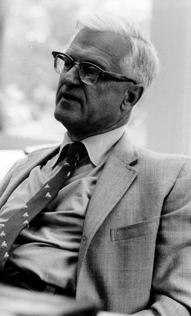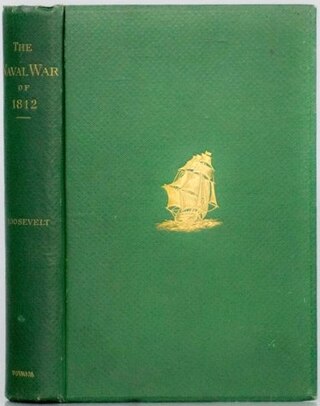
Ralph Linton was an American anthropologist of the mid-20th century, particularly remembered for his texts The Study of Man (1936) and The Tree of Culture (1955). One of Linton's major contributions to anthropology was defining a distinction between status and role.
Henry Field was an American anthropologist and archaeologist.

Erich Brauer was a German Jewish illustrator, ethnographer, and ethnologist. As an artist he chose to be known as Erich Chiram Brauer. He often signed his art work "Chiram".

Gertrude Caton Thompson, was an English archaeologist at a time when participation by women in the discipline was uncommon. Much of her archaeological work was conducted in Egypt. However, she also worked on expeditions in Zimbabwe, Malta, and South Arabia. Her notable contributions to the field of archaeology include creating a technique for excavating archaeological sites and information on Paleolithic to Predynastic civilizations in Zimbabwe and Egypt. Caton Thompson held many official positions in organizations such as the Prehistoric Society and the Royal Anthropological Institute.
Hiram Pendleton Caton III was a professor of politics and history at Griffith University, Brisbane, Australia, until his retirement. He was an ethicist, a Fellow of the Australian Institute of Biology, and a founding member of the Association for Politics and the Life Sciences. He was an officer of the International Society for Human Ethology. Caton held a National Humanities Fellowship at the National Humanities Center in 1982–83. He was the inaugural Professor of Humanities at Griffith University in Brisbane, and later the Professor of Politics and History and Head of the School of Applied Ethics there.
Charles Thomas William Curle, better known as Adam Curle, was a British academic, known for his work in social psychology, pedagogy, development studies and peace studies. After holding posts at the University of Oxford, University of Exeter, University of Ghana and Harvard University, in 1973 he became the inaugural Professor of Peace Studies at the University of Bradford, following the establishment of the University's Department of Peace Studies. Curle's works included several books on education, including Educational Strategy for Developing Societies (1963), and a number of books on peace and peacemaking, including Making Peace (1971). He was also, throughout his career and after his retirement in 1978, active in peacemaking and mediation, and visited Nigeria and Biafra several times as part of a Quaker contingent during the Nigerian Civil War of 1967–70.
Muhammad al-Gharsi is one of the most famous modern Yemeni poets. He is a friend of Ali Abdullah Saleh, the current President of Yemen and former President of the Yemen Arab Republic. Before the unification of Yemen, al-Gharsi was viewed as "an eloquent spokesman for the republican regime".
Michael Silverstein was an American linguist. He was the Charles F. Grey Distinguished Service Professor of anthropology, linguistics, and psychology at the University of Chicago. He was a theoretician of semiotics and linguistic anthropology. Over the course of his career he created an original synthesis of research on the semiotics of communication, the sociology of interaction, Russian formalist literary theory, linguistic pragmatics, sociolinguistics, early anthropological linguistics and structuralist grammatical theory, together with his own theoretical contributions, yielding a comprehensive account of the semiotics of human communication and its relation to culture. He presented the developing results of this project annually from 1970 until his death in a course entitled "Language in Culture." Among other achievements, he was instrumental in introducing the semiotic terminology of Charles Sanders Peirce, including especially the notion of indexicality, into the linguistic and anthropological literature; with coining the terms metapragmatics and metasemantics in drawing attention to the central importance of metasemiotic phenomena for any understanding of language or social life; and with introducing language ideology as a field of study. His works are noted for their terminological complexity and technical difficulty.

Sherwood Larned Washburn, nicknamed "Sherry", was an American physical anthropologist, and "a legend in the field." He was pioneer in the field of primatology, opening it to the study of primates in their natural habitats. His research and influence in the comparative analysis of primate behaviors to theories of human origins established a new course of study within the field of human evolution. He changed the field of anthropology with the publication of his paper The New Physical Anthropology, in 1951, in which he argued, convincingly, that human variation was continuous, and could not be broken up into discontinuous races.
The Yemen College of Middle Eastern Studies, commonly referred to as YCMES and formerly known as Yemen Language Center, is a private college located in the historic Old City of San‘a, Republic of Yemen. The YCMES is located on the 26th of September St, close to the Yemeni Parliament building, and a five-minute walk from Tahrir Square.

Daniel Martin Varisco, is an American anthropologist and historian.

Escowbeck House a country manor house on Caton Lane in Quernmore near Lancaster, Lancashire was constructed in 1842 in extensive parkland and countryside. It is situated overlooking the Crook of Lune south of the road from Lancaster to Caton and Hornby, near where the Escow Beck from which it takes its name, flows into the River Lune. The name Escow Beck is derived from the Old Norse eski + hofud and bekkr meaning the beck by the ash tree hill. It was recorded as Escouthebroc in 1225 and Escouthe bec in 1241. The gardens, created in the early 20th century, had a fish pond through which the Escow Beck flows and boat house. The house was divided into apartments during the 1950s.
John L. Comaroff is Professor of African and African American Studies and of Anthropology, Oppenheimer Fellow in African Studies at Harvard University. He is recognised for his study of African and African-American society. Comaroff and his wife, anthropologist Jean Comaroff, have collaborated on publications examining post-colonialism and the Tswana people of South Africa. He has written several texts describing his research and has presented peer-reviewed anthropological theories of African cultures that have relevance to understanding global society.
Herbert S. Lewis is a Professor Emeritus of Anthropology at the University of Wisconsin-Madison, where he taught from 1963 to 1998. He has conducted extensive field research.
Elinor Wight Gardner, a geology lecturer at Bedford College, London and research fellow at Lady Margaret Hall, is best known for her field surveys with Gertrude Caton–Thompson of the Kharga Oasis which are now recognized as pioneering interdisciplinary research in Africa.

Bint al-sahn, also known as sabayah, is a Yemeni pastry made from a dough, which is prepared by mixing white flour, eggs, yeast and clarified butter, known as samn (سمن). It is baked in multiple layers and typically served with honey and sprinkled with habbat as sowda.

The Naval War of 1812 is Theodore Roosevelt's first book, published in 1882. It covers the naval battles and technology used during the War of 1812. It is considered a seminal work in its field, and had a massive impact on the formation of the modern American Navy.

Social Bonding and Nurture Kinship: Compatibility between Cultural and Biological Approaches is a book on human kinship and social behavior by Maximilian Holland, published in 2012. The work synthesizes the perspectives of evolutionary biology, psychology and sociocultural anthropology towards understanding human social bonding and cooperative behavior. It presents a theoretical treatment that many consider to have resolved longstanding questions about the proper place of genetic connections in human kinship and social relations, and a synthesis that "should inspire more nuanced ventures in applying Darwinian approaches to sociocultural anthropology". The book has been called "A landmark in the field of evolutionary biology" which "gets to the heart of the matter concerning the contentious relationship between kinship categories, genetic relatedness and the prediction of behavior", "places genetic determinism in the correct perspective" and serves as "a shining example of what can be achieved when excellent scholars engage fully across disciplinary boundaries."
William Ury is an American author, academic, anthropologist, and negotiation expert. He co-founded the Harvard Program on Negotiation. Additionally, he helped found the International Negotiation Network with former President Jimmy Carter. Ury is the co-author of Getting to Yes with Roger Fisher, which set out the method of principled negotiation and established the idea of the best alternative to a negotiated agreement (BATNA) within negotiation theory.

Nehemiah 12 is the twelfth chapter of the Book of Nehemiah in the Old Testament of the Christian Bible, or the 22nd chapter of the book of Ezra-Nehemiah in the Hebrew Bible, which treats the book of Ezra and the book of Nehemiah as one book. Jewish tradition states that Ezra is the author of Ezra-Nehemiah as well as the Book of Chronicles, but modern scholars generally accept that a compiler from the 5th century BCE is the final author of these books. This chapter recounts the lineage of the priests and Levites and describes the dedication of the walls of Jerusalem, whose construction has been a primary concern since the beginning of the book.









